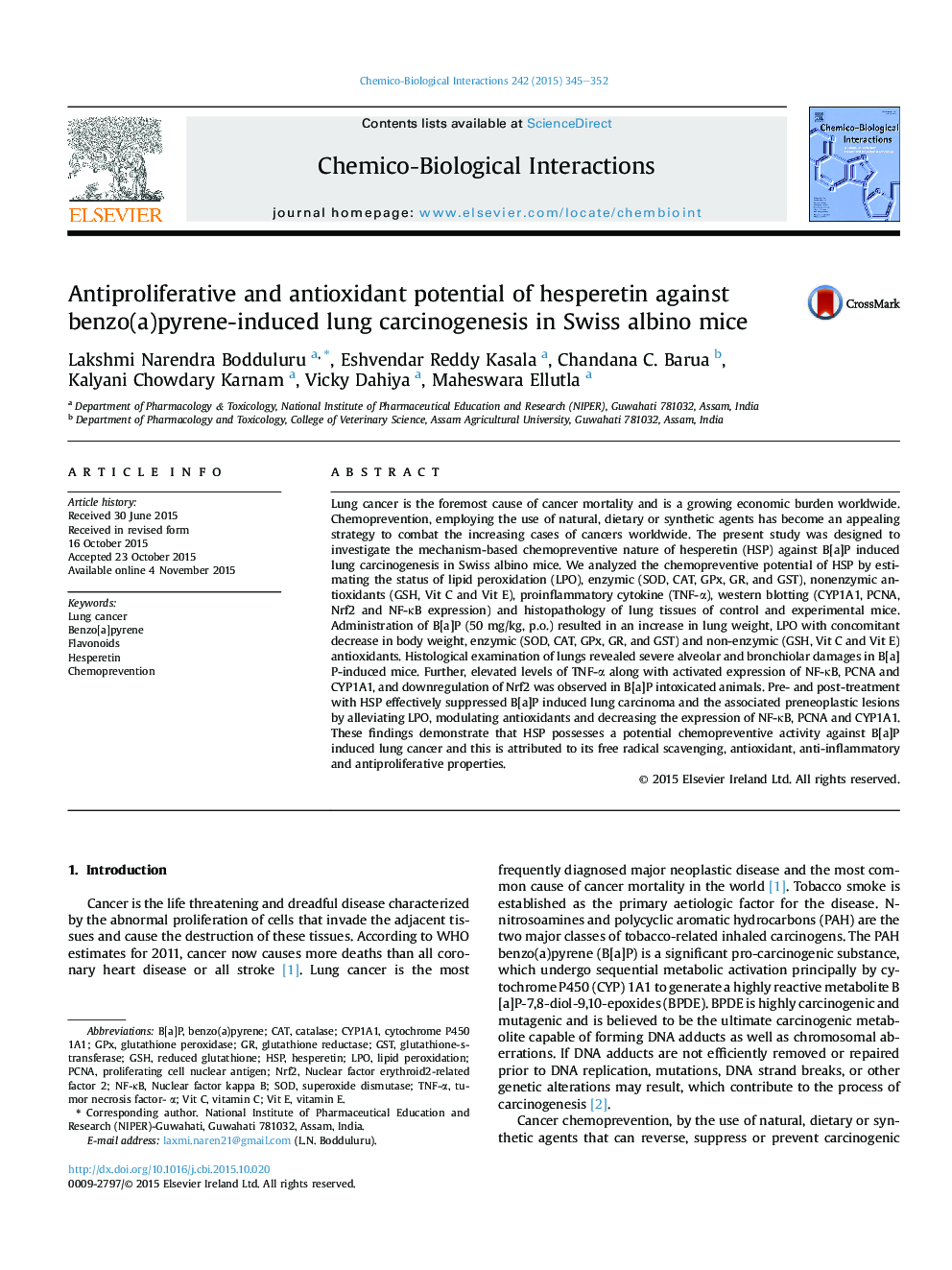| Article ID | Journal | Published Year | Pages | File Type |
|---|---|---|---|---|
| 2579970 | Chemico-Biological Interactions | 2015 | 8 Pages |
•Hesperetin exerts chemopreventive effect in B[a]P induced pulmonary carcinogenesis.•Hesperetin treatment restored the lipid peroxidation and antioxidants to near normalcy.•Hesperetin protects pulmonary architecture in mice with experimental lung cancer.•Hesperetin attenuated B[a]P induced oxidative stress by upregulating Nrf2.•Hesperetin downregulated the B[a]P-induced CYP1A1, NF-κB and PCNA expression.
Lung cancer is the foremost cause of cancer mortality and is a growing economic burden worldwide. Chemoprevention, employing the use of natural, dietary or synthetic agents has become an appealing strategy to combat the increasing cases of cancers worldwide. The present study was designed to investigate the mechanism-based chemopreventive nature of hesperetin (HSP) against B[a]P induced lung carcinogenesis in Swiss albino mice. We analyzed the chemopreventive potential of HSP by estimating the status of lipid peroxidation (LPO), enzymic (SOD, CAT, GPx, GR, and GST), nonenzymic antioxidants (GSH, Vit C and Vit E), proinflammatory cytokine (TNF-α), western blotting (CYP1A1, PCNA, Nrf2 and NF-κB expression) and histopathology of lung tissues of control and experimental mice. Administration of B[a]P (50 mg/kg, p.o.) resulted in an increase in lung weight, LPO with concomitant decrease in body weight, enzymic (SOD, CAT, GPx, GR, and GST) and non-enzymic (GSH, Vit C and Vit E) antioxidants. Histological examination of lungs revealed severe alveolar and bronchiolar damages in B[a]P-induced mice. Further, elevated levels of TNF-α along with activated expression of NF-κB, PCNA and CYP1A1, and downregulation of Nrf2 was observed in B[a]P intoxicated animals. Pre- and post-treatment with HSP effectively suppressed B[a]P induced lung carcinoma and the associated preneoplastic lesions by alleviating LPO, modulating antioxidants and decreasing the expression of NF-κB, PCNA and CYP1A1. These findings demonstrate that HSP possesses a potential chemopreventive activity against B[a]P induced lung cancer and this is attributed to its free radical scavenging, antioxidant, anti-inflammatory and antiproliferative properties.
Graphical abstractFigure optionsDownload full-size imageDownload as PowerPoint slide
